-
Web-based port of Laurie Spiegel's _Music Mouse_. Instant composition; just wonderful to fiddle with. Suddenly thinking about interfaces for this.
-
Using a Raspberry Pi to emulate the memory of a NES cartridge and then outputting that data through the original NES. The making-of is good too.
-
Impressive, fun, immediate.
-
A good list of ways to protect any MCU circuit – not just an Arduino.
-
Good crunchy post on the design of the axe-recall feature in God Of War (2018); particularly interesting on how it evolved, how players perceived variance in its implementation, and the subtleties of its sound and rumble implementation. And yes, there's screenshake. It's one of the simpler functions to grok in the game, but one of its best mechanics, I think. Looking forward to more posts.
-
Beautiful. Poppy Ackroyd soundtrack, too.
-
Yeah, that. See also 'drawing is thinking' – drawing exposes the paragraphs I left out of paragraphs I wrote. I've been writing documentation recently and boy, that properly forces you to think about how to describe the thing you're doing.
-
Janelle Shane – with some effort – trains neural networks to make knitting patterns. Then knitters from Ravelry make them. I love this: weird AI being taken at face value by people for art's sake.
-
Quite like the look of Stimulus for really simple interactions without too much cruft.
-
Really rather impressive port of Prince of Persia to… the BBC Micro. From the original Apple II source code which is, of course, also a 6502 chip – although not quite the same. The palette may be rough and ready, but the sound and animation is spot on. I'd dread playing this with the original micro keyboard, though.
-
"You are a traffic engineer. Draw freeway interchanges. Optimize for efficency and avoid traffic jams." Lovely.
-
Useful, this stuff is not nearly as easy as it should be in ES.
-
Great interview with Meng Qi, with lots of lovely stuff on being both a musician and an instrument bulider. I need to return to this.
-
This feels… familiar. Two things resonated a lot, though: the description of Hymns Ancient and Modern as a tradition to come from, and especially the description of 'cramming for A-levels' – my version of that was a combination of Fopp and Parrot Records at university, and the local libraries' CD sections during my teenage years.
He's a better musician then me, though, clearly.
Favourite Games of 2008
24 December 2008
It’s the end of the year, and that means time for lists. My books and albums lists are forthcoming – hopefully tonight or tomorrow – but in the meantime, I thought I’d kick off with ten of my favourite games of the past year.
There’s lots missing here, mainly owing to the fact I haven’t finished a lot of recent titles or given them the time they’ve deserved. What this is, though, is a good summary of what the gaming year felt like to me; ten games I enjoyed a great deal, and that I would recommend in a heartbeat to anyone not sure where to begin with 2008.
And so, in no particular order:
Far Cry 2
(Xbox 360, PS3, PC)
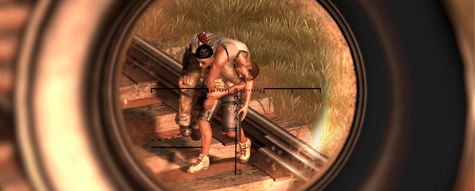
I have written enough about this already, but suffice to say: it sunk its teeth into me, after the initial hump I couldn’t play anything else, and at the end, it left me unable to play anything else for a while. Spectacularly beautiful, too.
Trism
(iPhone)
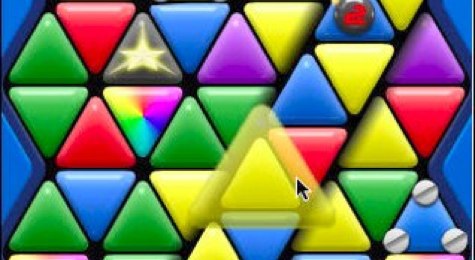
Trism began as an app for the jailbroken iPhone; it quickly made the transition to the official App Store platform when that opened up, and it has sold hundreds of thousands of dollars of copies since then, giving Demiforce a fantastic start to their company. And with good reason: it’s a great piece of game design, easy to learn, and hard to master. It also makes brilliant use of not only the iPhone’s capacitive touch screen, but also its tilt sensor. It’s a very pure puzzling experience, and I’ve already sunk many hours into it; it suits the pick-up/put-down rhythm of travel and play on-the-move idaelly. If you have an iPhone or iPod touch, this really is a no-brainer.
Geometry Wars Retro Evolved 2
(Xbox 360)

It’s still one of the best games on Live Arcade. It’s also still one of the best asynchronous multiplayer games you can play. Making your friends high scores the default high score table gives it a great competitive streak and really contextualises your performance: nothing’s more frustrating than having emailed a friend to say “hah, beat your high score” only to receive an response five minutes later informing you that the ball is firmly back in your court.
Adding variety to the original formula are the six game modes, slowly unlocked over time. They may all be variants on a theme, but they all still demand unique skills and become games in their own right: turning the Pacifism achievement from the first game into a mode in its own right was a great move.
Beautiful in high-def, easily explained to anyone who’s played a videogame in their life, it’s by turns accessible and challenging, and an essential purchase for new 360 players. Also, its social scoreboards give it great longevity, and prove what I already know: I’m nearly, but not quite, at the bottom of the pack when it comes to motor control. As long as I’m not last…
Braid
(Xbox 360)
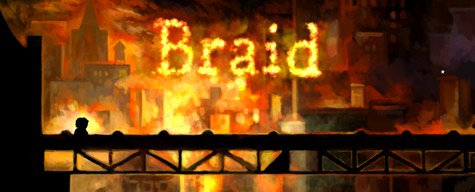
If there’s a measures of Braid’s success, it’s not to be found in its sales or metacritic scores, but in the sheer volume of verbiage devoted to it in the blogs, forums, and magazines of the gaming world. Thousands of words, all expended on the game, on the hype, and on what the hell it all means.
It wouldn’t have got that discussion if it wasn’t in some way good, and it really is: beautiful, challenging, and proof of the things that only games can do. It embraces game-native storytelling, wrapping its meaning tightly around its mechanics, and tells its tale through challenging, timeless puzzles and David Hellman‘s incredible artwork.
Perhaps it is a little pretentious; perhaps the writing is weak. Regardless of those facts, it’s exciting to see a game like this getting such a major launch on a mainstream, living-room platform, and as an artefact to push forward the casual – as well as professional – criticism of games, it’s a great starting point.
GRID
(Xbox 360, PS3, PC)

I always forget how much I like racing games. GRID is a very, very fine take on the racer. It’s beautiful, it’s fast, and it’s totally stripped down. GRID demonstrated that Codemasters really understood what making a game “cinematic” might look like: you condense it down into tight, exciting drama. So races take place over two-to-five laps, and in that time the AI will give you as good a catfight as any “realistic” simulator might over an hour. The rewind-time mechanic, as well as being wonderful to watch, removes the traditional racing-game reliance on the “restart” option; giving the game a pre-credits race, not to mention an ongoing narrative of running a team only helps with the Days of Thunder feel. Mapping Le Mans to a twenty-four minute endurance race makes it both exciting and endurable.
And, of course, it’s very pretty and fast as hell. The open-wheel racing is some of the most exciting driving games have to offer, in particular. The drift tournaments are weak, but stick to the touring cars, touge and open-wheel and you’ve got a hell of a game. The icing on the cake is the beautiful, free-floating typography. Solid, and surprisingly good.
Grand Theft Auto IV
(Xbox 360, PS3, PC)
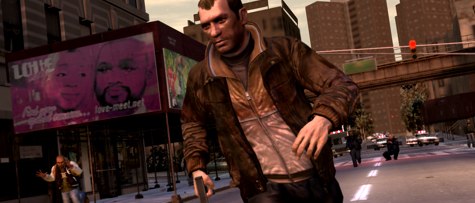
It’s on everybody else’s list, and I can’t really deny it: it’s a wonderful environment, and a staggering achievement. It’s not as smart as it likes, and it occasionally misfires but it delivers moments by the dozen. Shame the pacing of the islands feels wrong – after the majesty of Three Leaf Clover, being dumped in the New Jersey analogue is a bit underwhelming.
Also: multiplayer, with the right gang of people, is a total hoot. Whilst not the runaway online success that might have been hoped for, if you can get eight to sixteen friends online together, Cops and Crooks or Turf War will bring the fun pretty fast.
God of War: Chains of Olympus
(PSP)
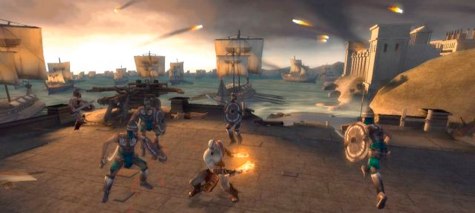
Well, it came out this year in the UK. I played this sitting by a roaring log fire, having spent my days clambering around the Lake District. It is not the greatest game of the year by a long stretch. It is, however, a wonderfully crafted experience: short it may be, but it’s put together almost perfectly: fantastic environments that barely repeat, thrilling combat that’s not too difficult, and one of the most striking in-game sequences I’ve played this year. It helps that the lack of direct camera control translates perfectly to the single-stick PSP. On top of all that, it looks almost as good as the PS2 versions – it’s a remarkable feat of engineering. I had a lot of fun with this, and if you own Sony’s much-unloved portable, you owe yourself to play this.
Left 4 Dead
(Xbox 360, PC)
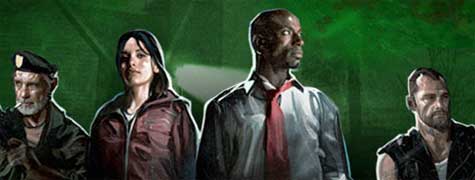
Gerard Way asked if it was any good, and the answer is yes, Gerard, it is. It’s bloody brilliant, although with the obvious caveat that it gets better with friends. Co-op gaming has slowly seen a slew of support and innovation in the past two to three years, and Left 4 Dead represents one particular pinnacle of that: an experience designed ground-up to be played not only co-operatively, but with real friends.
It’s not about team-mates, it’s about mates; how far would you go to save your friends from a Smoker? Quite far, as it turns out; I’ve noticed that in various pick-up groups, if I have to pick between someone I know in real life and someone I don’t, I’ll go with my friends first. To see such an unashamedly co-op experience – and one that could be described as reasonably hardcore if you hadn’t tried it – achieve such a level of mainstream success is very heartening. I put it down to the fact that Valve are such a talented gang of people, and so fastidious in their process. If you’ve not played through the director’s commentary, you owe it to yourself to do so, if only to understand that nothing in the final product is the result of chance.
Also: it’s great to see a game that puts the mechanic, indeed, the core technology, that really makes it – the AI – so far front-and-center. Personifying it as the AI Director was the stroke of genius that not only made players aware of it, but gave them someone to blame when they all died. Again.
World of Goo
(Mac, PC, Wii)
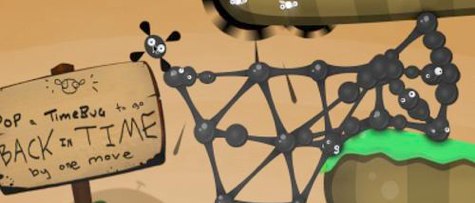
There are two reasons, I think, that World of Goo has captured a lot of people’s hearts this year. One is the game itself: the wonderful art; the delightful soundtrack; the just-one-more-go gameplay that carefully teaches you everything to know whilst keeping the challenge just high enough. But the other is the game’s mythology: 2D Boy, two guys working out of coffee shops for a year, giving up on the traditional industry to make the game they really wanted to. It’s the story we all wanted to believe in. The fact that both elements are so great is the real magic of World of Goo: risking it all, living the indie dream, really did lead to a wonderful game.
Gravitation
(Mac, PC, Linux)
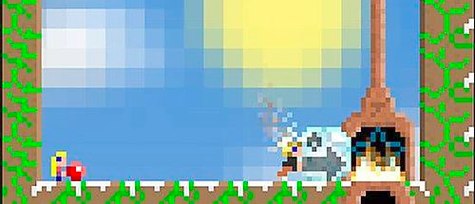
I like this more than Rohrer’s previous Passage. It’s a small, simple game, available for most home desktop platforms (Windows/OSX/Linux), about “mania, melancholia, and the creative process”. To say any more is to rob it of its impact. Once I worked out what you have to do to progress, I played on with a huge lump in my throat. To be heartbroken by a game this slight, this simple, in its 100 square pixel area, is quite something, and Rohrer makes games like no-one else.
-
"So we decided to treat Availabot as a world probe: it was decided that we would take Availabot through to the position of being factory ready, and in the process learn as much as possible about the processes of manufacture, and how to develop these kind of complex products with so many moving parts." And, best news of all: Availabot will be coming to market. Excellent.
-
"…this leads up to a discussion of two things: the OAuth protocol which aims, amongst other laudable goals, to help safeguard users’ passwords, and the distinctly unnerving trend which Jeremy Keith has christened the password anti-pattern, which really doesn’t." A clear, articulate explanation of the issues around authentication.
-
In 2000, a group of seventh-graders were asked to draw what they thought scientists looked like and describe their pictures. Then, after visting Fermilab, they were asked to repeat the exercise. Some of the quotations are genuinely excellent, cf "Some people think that (scientists) are just some genius nerds in white coats, but they are actually people who are trying to live up to their dreams and learn more." Aren't we all?
-
"At GDC 2006 Sony’s Lead Programmer – Tim Moss had talk titled “God of War: How the Left and Right Brain Learned to Love One Another”. I read it, remembered mainly that it was interesting they had used Maya as main tool and kinda forgot about it. Only recently I’ve found out that recording from this session has been made available (for free) as well. You can download it here. Combined together they’re really interesting and I recommend everyone to spend few minutes and listen to it while reading slides." Some interesting stuff – God of War pre-scripts a lot of things that other people might want to do in real time, and as such, makes some stuff simpler, and makes controlling the players' experience easier.
-
A detailed look at various techniques for greebling Lego models.
-
"To me, these bizarre sequences represent adaptations of classical Brechtian stagecraft to video games. The way we interact with a game is different than the way we interact with a staged fiction, and by manipulating the tools specific to game-interaction– the interface and the mission-delivery system– Kojima delivers that sense of alienating weirdness that's the hallmark of the Verfremdungseffekt." I like Pliskin's commentary here – the absurdity of Arsenal Gear was great, and much preferable to the boss-rush that followed it.
-
"The dissertation builds on available sociological approaches to understanding everyday life in the networked city to show that emergent technologies reshape our experiences of spatiality, temporality and embodiment. It contributes to methodological innovation through the use of data bricolage and research blogging 1, which are presented through experimental and recombinant textual strategies; and it contributes to the field of science and technology studies by bringing together actor-network theory with the sociology of expectations in order to empirically evaluate an area of cutting-edge design." Anne Galloway's PhD thesis, now online.
-
A remake of "You Have To Burn The Rope", in the style of an Intellivision game. They've changed an important play mechanic and given the game an entertaining twist ending. Fun.